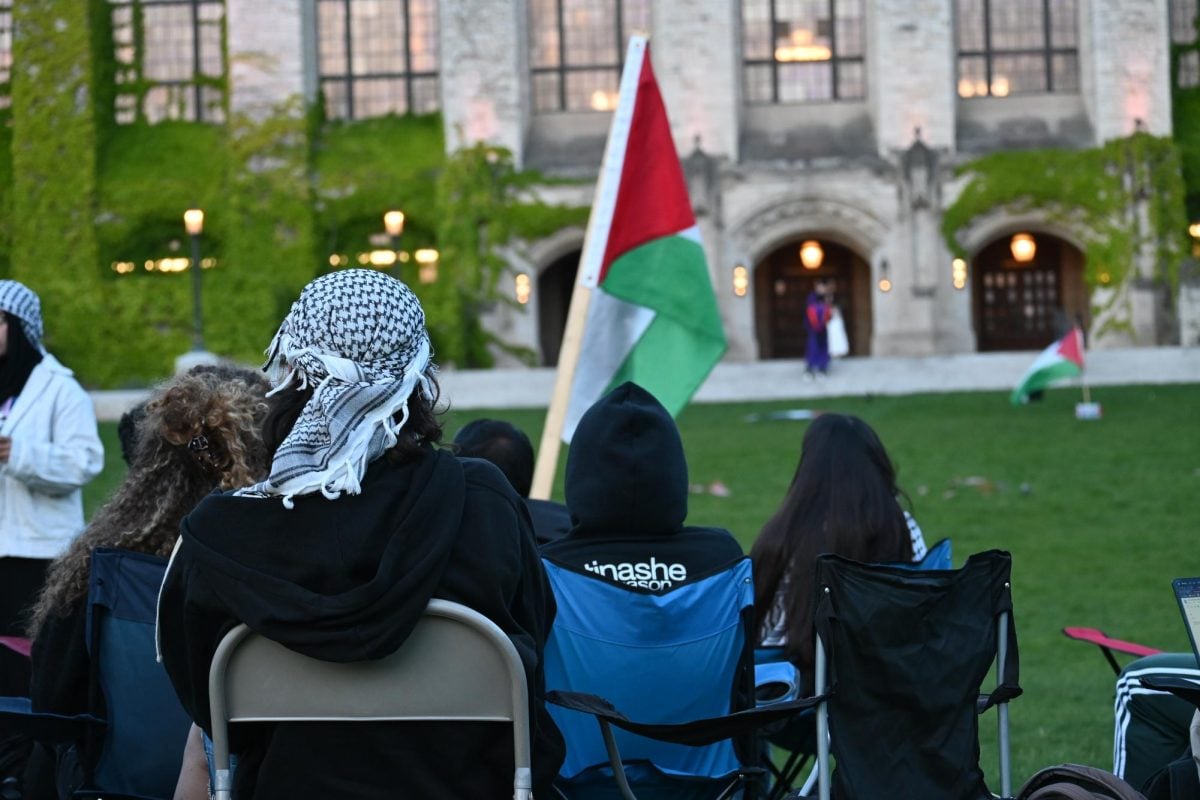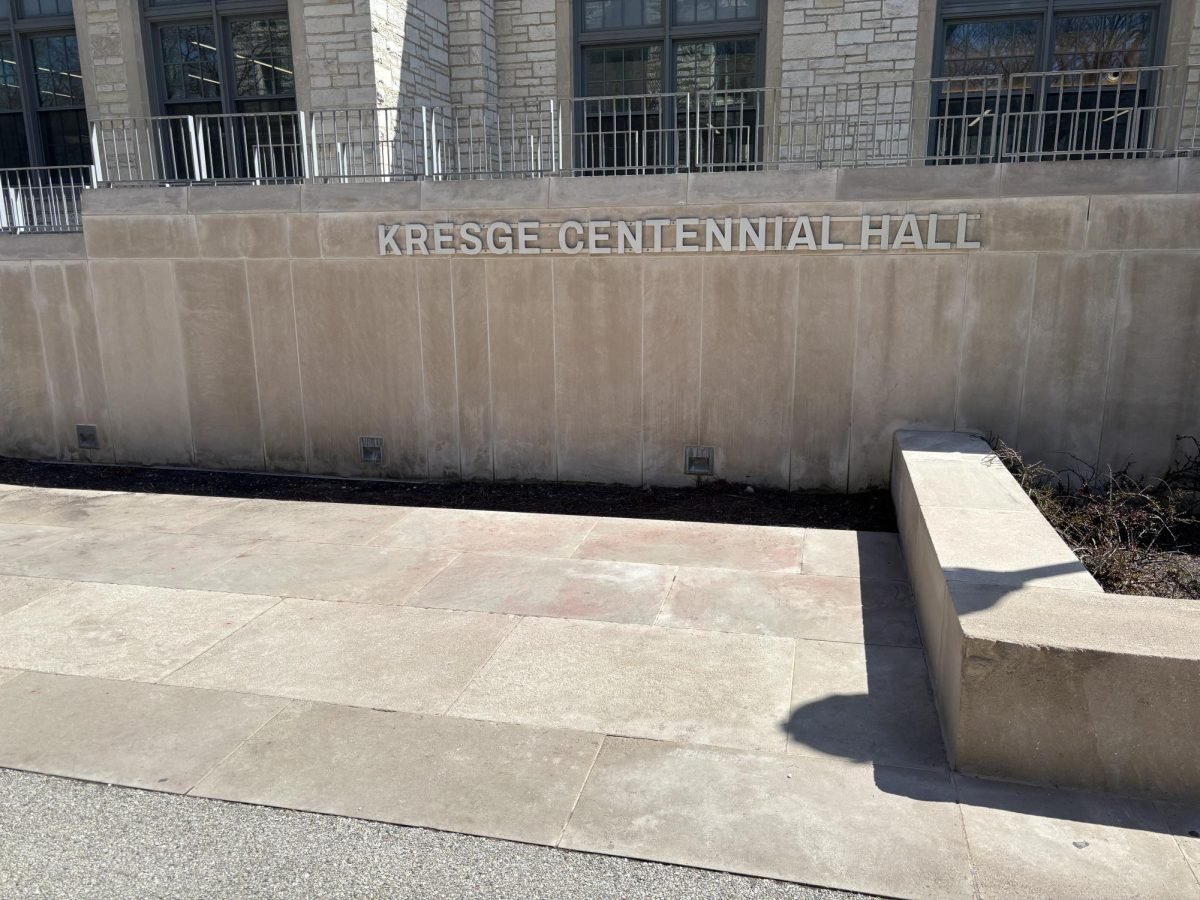Around 30 Northwestern students and Evanston community members commemorated Nakba Remembrance Day with a vigil and prayers on Deering Meadow — renamed by Palestine Week organizers as Hind Meadow to honor the death of Hind Rajab, a young Palestinian girl.
The vigil, held on Wednesday evening, marked Day 5 of Palestine Week.
The event is part of ongoing programming hosted by NU’s Middle Eastern North African Student Association, Educators for Justice in Palestine, Students for Justice in Palestine, Jewish Voice for Peace and Fossil Free NU as part of their efforts to bring awareness to the current conflict in the Gaza Strip.
According to event organizers, the vigil aimed to educate attendees about the history of the Nakba and looked to memorialize the displacement of over 700,000 Palestinians from their homes in 1948.
“Nakba translates to ‘catastrophe’ in Arabic because between 1948 and 1950, 530 villages were destroyed (and) 15,000 Palestinian women, men and children were killed,” said an organizer who asked to remain anonymous for fear of retribution.
The organizer added that in 2024, Palestinians are commemorating 76 years of loss and dispossession since Israel declared its independence in 1948.
Speakers recalled events that took place during and after the Nakba, referencing the Palestinian refugees and destruction of hospitals in Gaza.
Organizers encouraged attendees to share their own experiences, whether it related to the Nakba or diasporic events in other areas of the world.
A Palestinian student organizer shared that his grandmother lived in Haifa in 1948. His family — like other Palestinian families — was told that they had to leave for two weeks, he said. The family fled to Alexandria, Egypt.
“My grandmother is now 82 years old, and she’s never been back,” the organizer said. “Haifa is now considered a part of the State of Israel, and all the villages that were there — that were promised to the Palestinian people — were wiped out.”
He said his family history is the reason he continues to support pro-Palestinian movements on campus, like the five-day encampment on Deering Meadow that ended in an agreement between the University and organizers to provide additional support for MENA and Muslim students and faculty.
The vigil comes as Israel continues its air and ground offensive in Gaza which has killed more than 35,000 Palestinians, according to Palestinian officials. The military action follows Hamas’ Oct. 7 attack on Israel which killed about 1,200 Israelis, according to Israeli officials.
One NU student who spoke at the event said her family is from Eritrea.
“(My family) has also been a victim of not only Western imperialism and colonialism, but also oppression under the threat of Zionism,” she said. “My parents growing up didn’t learn their native language in school because Eritrea was annexed to Ethiopia. Both of my parents did not grow up, past the age of 18, without their mothers, fathers, or the rest of their siblings.”
The student said she feels lucky to be able to travel back to Eritrea, but that it’s hard to be from a place where she has to “confront the legacies” of colonialism and imperialism.
She said it is important to know solidarity is not a new concept as all struggles are interconnected.
“I think that it’s imperative that, if you have a story, that you’re willing to stand up and say that this isn’t just about Palestinian people, this is about all of us, right now,” the student said. “It’s happening to Palestinian people. But this could be anybody.”
Around 8 p.m., attendees observed a moment of silence honoring the Palestinian lives lost.
A Muslim-cultural Students Association board member transitioned the event into leading the Maghrib prayer, a traditional sunset prayer. A Jewish student then led a Hebrew prayer to end the night.
A MENA student attendee said he’d heard about the Nakba since he was 10 years old.
“The word comes up within family conversations, and learning how the kids had to see their families get slaughtered in front of them would make you cry,” he said. “At the same time, (it) reminds you of the amount of injustice that Palestinian people had to go through for, now, 76 years.”
He said part of the vigil is practicing what he’s learned at NU — that when he sees something wrong, he should stand up for change.
The vigil concluded with closing remarks from organizers urging students and community members to continue educating themselves about the complexities of the conflict.
Organizers also shared the rest of the week’s events and encouraged the audience to continue to support their efforts.
“While we treat the Nakba somewhat like a historical event, the reality of the situation is that the Nakba has never ended, and Palestinians continue to be treated unjustly,” an organizer said. “It’s a very tough time, but being together makes it a little bit easier to bear through.”
Email: samantahabashy2026@u.northwestern.edu
Twitter: @HabashySam
Related Stories:
— Palestine Week organizers host Q&A with Palestinian journalist Ramia Tobassi
— Palestine Week opens with art building, keffiyeh history lesson
— Palestinian-American activist Rami Nashashibi shares message of unity to Deering Meadow encampment


















